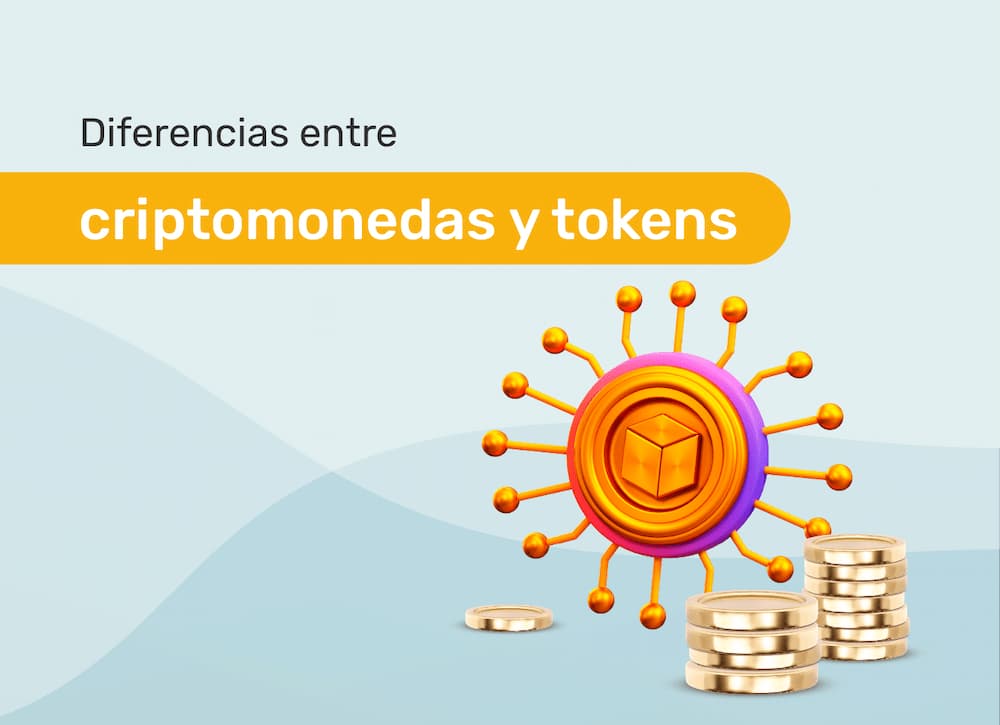Cryptocurrencies, tokens, virtual currencies. These are some of the names we usually give to digital assets. Since Bitcoin first saw the light of day in 2008, crypto projects have spread around the world and the number of new cryptocurrencies is increasing every day.
The number of existing projects resulted in different types of products with different objectives and functionalities. But at El Dorado, we don't have complications, so we're going to explain the simplest and most common way to differentiate cryptocurrencies from tokens.
Cryptocurrencies
Cryptocurrencies are digital currencies native to the blockchain where they work, for example the case of BTC that works on the Bitcoin blockchain or Ether that works thanks to the Ethereum blockchain.
Cryptocurrencies share certain characteristics with the money we use in our daily lives, they are fungible, divisible, portable and have a limited supply. In addition, both are used for the same purposes: to purchase goods or services, to save and as a store of value.
As there are similarities, there are also big and important differences. The main one is security, since a cryptocurrency is almost impossible (not to say totally impossible) of counterfeiting, all thanks to the support of blockchain and decentralization. What was mentioned above is another big difference, since cryptocurrencies are not regulated by any centralized institution such as a bank or a company.
Tokens
Tokens, on the other hand, need a third-party blockchain in order to work. Ethereum is the most used platform for creating tokens, these tokens are known as the ERC-20 token.
The purpose of tokens covers a much wider spectrum than that of cryptocurrencies, each token has a specific use that is established by the person or company that creates it.
There are many types of tokens, but here are the most common ones:
- Governance tokens: They are used to grant the user who owns them the right to participate in the decisions of a project. For example, proposing changes, new features or fixes.
- Non-fungible tokens or NFTs: These tokens function as a digital certificate of ownership over a single or non-replaceable item. These valuable digital files are hosted on the blockchain and can represent works of art, photos, videos, audios, collectibles, etc.
- Stablecoins: Yes, stablecoins are a type of token that, unlike the previous ones and, as the name suggests, are stable, meaning that they never change price. The most famous example is USDT, a token pegged to the value of the US Dollar.
We hope to have clarified your doubts about the differences between cryptocurrencies and tokens, as we said at the beginning, we are part of a very large ecosystem that is also constantly expanding, which makes it very difficult to know and use each term perfectly.
We invite you to download our application, where you can buy cryptocurrencies like Bitcoin or tokens like USDT in a simple way, and best of all, you can do it with your local currency and your favorite payment method.
What are you waiting for? Start your path to financial freedom with El Dorado.




